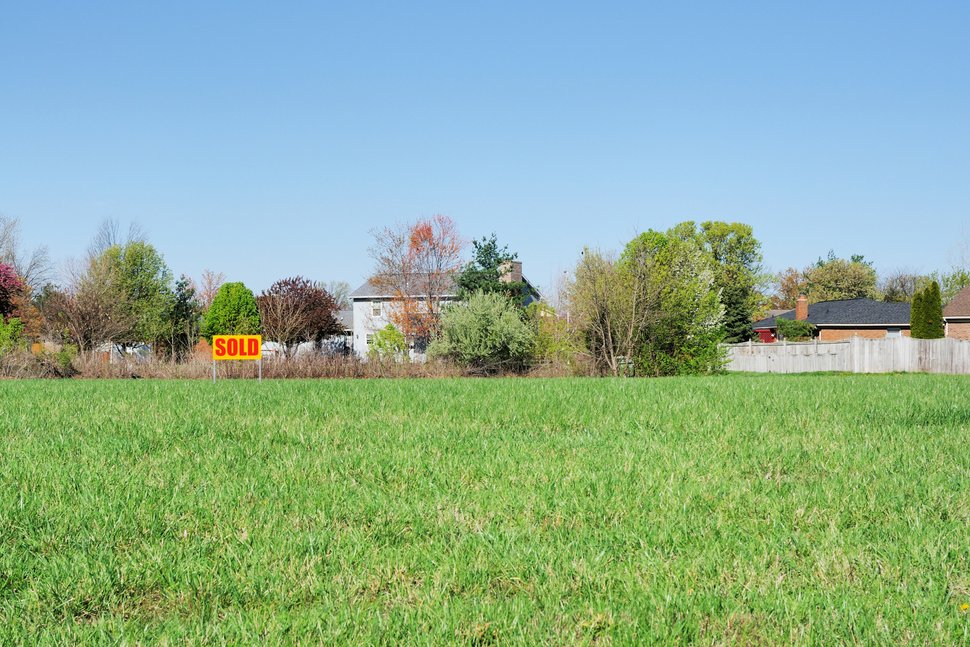Being able to develop property on your own land can feel empowering and exhilarating. You get to build the house based on your exact specifications, and really put your personal touch on it. You can also save a lot of money in the process. There are aspects, however, that first-time developers may not fully understand about buying a piece of land. There are many challenges to building in certain areas, and some could undermine any cost-benefit from self-building. Let’s take a look at a few factors you should take into consideration when acquiring land for development.
Check How Surrounding Land Costs
One of the challenges when buying a piece of land is evaluating how much you should pay for it. The quickest way to get an estimated value of a piece of land is to look at the land around it. Check prices in the immediate area, and see if the price for this piece of land is in alignment with it. Also, see if it’s an area that is booming and developing, or on the decline. Investing in a piece of land in an expanding area could warrant paying a little extra.
Inspect the Parcel Thoroughly
The next step is to get the peace of land surveyed. This is where working with a professionally licensed land surveying firm will help. They will be able to help you identify possible issues with the land, like inaccessibility to utility lines. They will also be able to survey the topography and identify things that could become obstacles during construction. All of this will affect the value of the piece of land, and allow you to renegotiate if you see any sticking points.
A good land surveying team will also be able to see if there are any major issues under the surface. The structural integrity might be compromised by various factors too. There are also cases where you could find that the land is covering toxic waste, or you may have plans to build underground, but find that the rock formation makes it virtually impossible. These are all things you’ll only be able to know through a good survey of the land.
Project Planning
You then need to look at this survey and consider if the costs associated with the project are worth it. You have to see if there will be major modifications that will be needed for the site to be buildable and up to code. You then have to access the resources that will need to be deployed to give you access to basic utilities like running water, heat, electricity, and waste removal.
Inspect the Environment
In addition to this, you have to inspect the environment as well. For instance, you might be close to a plant or an airport. Noise from incoming planes can turn from a nuisance at first to an absolute nightmare depending on the traffic. So, you have to consider the area, and see if there could be any deal breakers.
If your land is somewhere remote and the closest power plant is miles away, for example, you might have to pay additional costs for cables to go over private land. This alone could sour the whole deal.
You also want to look at the services available. This might be especially crucial if you have a family and were intending to live on the land. Are there any schools close by? If the kids are going to college, what are their options? What about community services, or houses of worship? Then there are the essentials like a police/fire department and trash pickup. These are all things that will affect your quality of life.
Another thing you’ll have to take a look at is how close you are to highways, and how close you are to the nearest towns. Being able to access roads is very important if you want to access essential services and necessities.
The Soil Test
If the plot of land is in a remote area and you aren’t close to any sewer lines, you will have to pass a soil test to make sure that it will be able to withstand any potential leak from a septic tank system. Note that you will not be able to build on the land unless you can pass that test, so make sure that there’s a contingency clause in the purchasing deal just in case it doesn’t.
Zoning Issues
Areas will usually be zoned for specific uses, like residential, commercial, or industrial. You must understand these zoning laws wherever you are. You might just realize that you can’t build the type of project you wanted on that particular piece of land, even if other projects around might seem similar.
It’s also important that you’re aware of the restrictions on the piece of land before you make your decisions. This will be one of the most crucial points you’ll have to discuss with your agent. Some of these could make a big difference, like restrictions on building a fence, for instance, or the number of vehicles allowed on the property.
Natural Disasters
Another crucial thing you’ll have to look at is whether the area is prone to natural disasters. It’s easy to see if a property is straight in the middle of tornado alley or where there are frequent hurricanes, but things like flooding can sneak up on you. This is why you have to check if the property is close to any water stream and in a possible flood plain. Not only is being in an area that is prone to disasters an issue for you and your family’s safety, but you could run into problems with your insurance company.
Buying land is not something you do on a whim. You have to know everything there is to know about it and make sure that you have a solid team behind you that will help you tell if your intended project will be feasible or worthwhile.

Leave a Reply